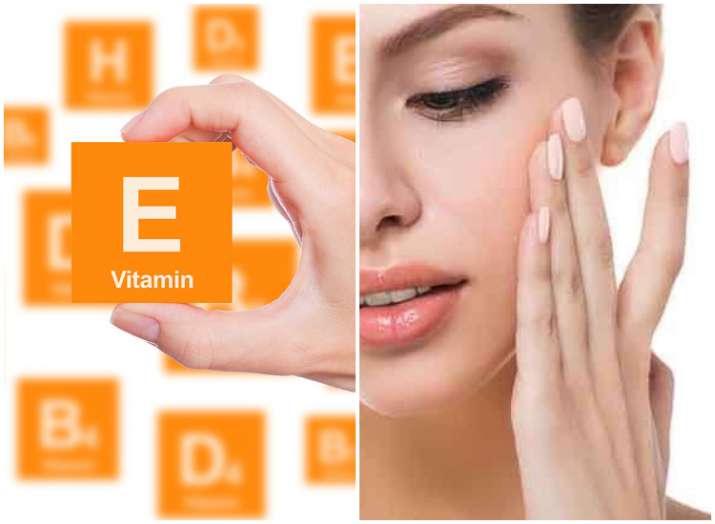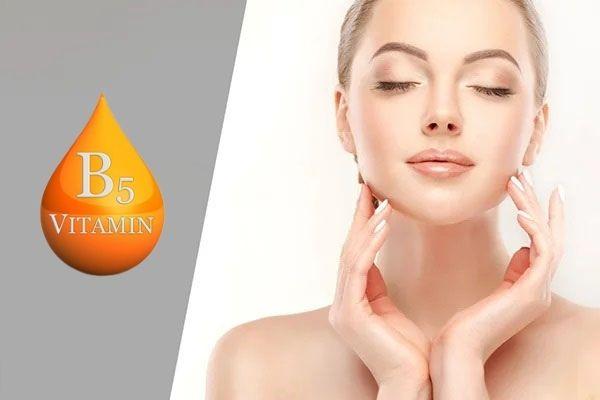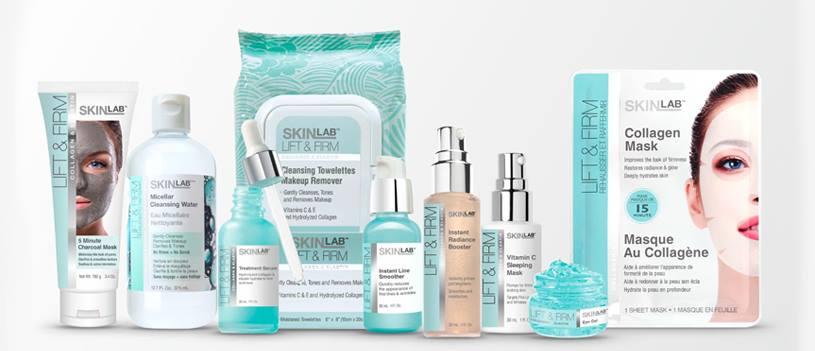Vitamin C, E, B5 and their benefits for the skin
Major vitamins in a skincare routine

1- Vitamin C 2- Vitamin B5 3- Vitamin E
Here's a look at what they do to your skin and why you should keep this in mind and incorporate these topical vitamins into your daily skincare routine
What is vitamin C for the skin?

Vitamin C properties and benefits for the skin:
Safe for most skin types:
Vitamin C has excellent safety properties. Most people can use topical vitamin C for an extended period of time without experiencing any adverse reactions.
Skin Moisturizer:
Vitamin C has been shown to have a moisturizing effect on the skin, according to a 2013 review. It reduces transepidermal water loss, allowing your skin to better retain its hydration.
Gives the skin a radiance:
Vitamin C can help remove pigmentation and smooth the surface of the skin to reduce dullness. This gives the skin a youthful glow.
Reduce redness on the skin:
The anti-inflammatory properties of vitamin C can also help reduce redness, which in turn can create a more even complexion and smooth, clear skin tone.
Reduce skin hyperpigmentation:
Hyperpigmentation — including sun spots, age spots, and melasma — occurs when melanin is overproduced in certain areas of the skin. It can also occur in areas where acne has healed. Vitamin C prevents the formation of melanin by reducing the activity of an enzyme known as 'tyrosinase'. Vitamin C is widely used in dermatology to remove hyperpigmentation spots on the skin.
Reduces the appearance of circles under the eyes:
According to a small 2009 study, vitamin C in the form of sodium ascorbate 10 percent was found to improve dark circles of the lower eyelid after 6 months of use by thickening the eyelid dermis and masking the darkening due to hyperemia.
Helps prevent sagging by boosting collagen production:
Skin elasticity and firmness are linked to collagen production. When collagen levels begin to decline, your skin may begin to sag. Vitamin C is known for its ability to increase collagen production, and is a trusted source through the collagen synthesis process. In fact, collagen synthesis cannot occur without vitamin C. This is because vitamin C is the primary cofactor for the two enzymes required for collagen synthesis.
Protects from sun damage to the skin:
Topical application of vitamin C, in combination with vitamin E and other compounds, has also been shown to reduce the incidence of sunburn due to ultraviolet radiation, according to a 2013 review above. This combination also reduces inflammation caused by excessive exposure to UV rays.
Helps heal wounds on the skin:
Given its effects on sunburns, it should come as no surprise that the use of vitamin C can speed up overall wound healing. Healthy wound healing reduces the risk of inflammation, infection and scarring.
What is vitamin E for the skin?

Vitamin E properties and benefits for the skin:
Works to moisturize the skin:
Vitamin E acts as a moisturizer to prevent or treat dry, flaky skin.
Helps heal wounds on the skin:
Some research suggests that vitamin E may promote wound healing. But there is little research on this topic.
Skin cancer prevention:
A 2013 study found that mice given a supplement containing vitamin E were less likely to develop skin cancer, even when exposed to high amounts of UV radiation. These findings have led some supporters of vitamin E to claim that it can prevent skin cancer.
Reduce itchy skin:
Since it moisturizes the skin, it may provide temporary relief from itching caused by dry skin. Keeping the skin well hydrated may help prevent dry skin and symptoms such as itching.
Relieves symptoms of eczema:
Vitamin E relieves dryness, itching and flaking associated with eczema or atopic dermatitis.
Psoriasis:
At least one study has linked vitamin E to a reduction in psoriasis symptoms. Even better, the study showed that there are no serious side effects.
Preventing or minimizing the appearance of scars:
Research suggests that well-moisturized skin is less likely to scar. So for people who do not have an allergic reaction to vitamin E, using it as a moisturizer while the wound is healing may provide some benefits.
Preventing or treating fine lines and wrinkles:
Dry skin tends to look more wrinkled than well-moistened skin. The moisturizing benefits of vitamin E may help skin appear younger and less wrinkled.
Prevent sunburn:
Since vitamin E can moisturize and soothe dry, flaky skin, it may help relieve the burning and itching caused by sunburn.
What is vitamin B5 for the skin?

Vitamin B5 properties and benefits for the skin:
Best moisturizer:
With its excellent moisturizing properties, Vitamin B5 attracts moisture, deeply moisturizes the skin, improving softness and elasticity and providing the skin with long-lasting hydration.
Repairing the skin's natural barrier:
Vitamin B5 improves barrier function, improves hydration of the stratum corneum (the outer layer of the skin), and promotes regeneration of hard tissues so it acts as a natural skin healer and protector.
Maintains skin elasticity:
By regenerating damaged skin structure and improving tissue regeneration, Vitamin B5 stabilizes the skin. All this helps in enhancing the elasticity of the skin.
Anti-aging moisturizer:
Vitamin B5 also plays an important role in rejuvenating aging skin. As evidenced by one of the research, "Preparations containing vitamin B5, as one of their main ingredients, help improve skin texture, skin tone, reduce hyperpigmentation and reduce signs of aging such as fine lines and wrinkles.
It works on acne:
Vitamin B5 also helps reduce acne blisters. Research indicates that vitamin B5 helps inhibit fibroblast proliferation and accelerates re-epithelialization of the skin, thus healing inflammatory lesions of the face. Moreover, it removes acne spots and helps in purifying and enhancing skin tone and radiance.
Reduces inflammation:
Vitamin B5 exhibits powerful anti-inflammatory activities. Thus, it reduces redness and inflammation caused by acne, sunburn and irritation. Calms the skin and relieves irritation and redness.


